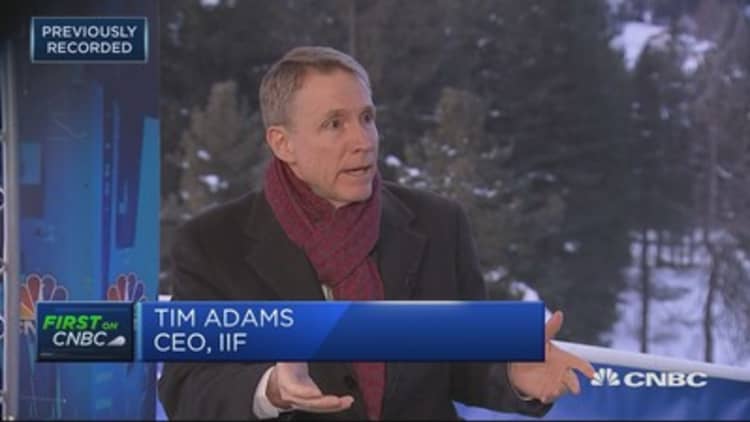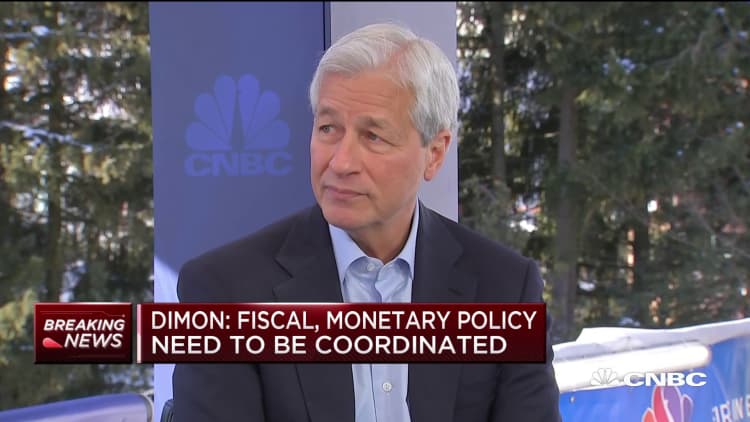With global debt set to exceed $257 trillion in the first quarter of 2020, the head of the Institute of International Finance (IIF) has warned that "white elephants" in emerging markets could pose a problem.
Total worldwide debt hit $253 trillion by the end of September 2019, with record-low interest rates making it easier for corporates, governments and individuals to borrow.
Global debt compared against total output surpassed 322% in the third quarter of 2019 and will continue to grow, according to the latest IIF report.
"We see a huge run-up in debt and leverage in this cycle, whether it's emerging markets or mature markets, whether it's corporates, sovereigns or households, and yet interest rates don't move, so maybe markets are telling us that we still have more capacity … but I worry about it nonetheless," IIF President and CEO Tim Adams told CNBC at the World Economic Forum in Davos on Thursday.

In particular, Adams highlighted that $8 trillion in outstanding foreign-denominated debt from the emerging markets, of which $2 trillion will need to be rolled over this year.
"That's an issue, but a lot of this EM corporate (debt) is real estate on enterprises masquerading as corporates. The question is: is this real business or are these white elephants and how will they pay them back over time, and will they ultimately go on the balance sheets of those sovereigns?" Adams told CNBC's Geoff Cutmore and Steve Sedgwick.
The IIF is an association of financial institutions which was formed following the debt crisis of the 1980s.
"I have nothing against debt if it goes to productive enterprise, either for social good or private capital formation," Adams clarified, adding that "if it goes for consumption, if it goes for white elephants, state-owned enterprises in some emerging markets, we have problems."






